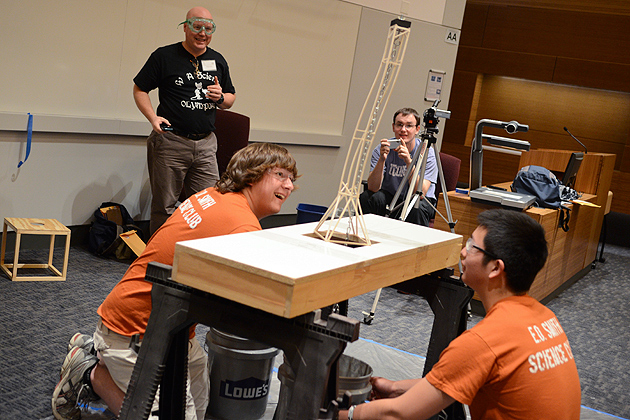[flickr-gallery id=”72157629731667957″]
More than 300 students from 18 high schools competed in the Connecticut Science Olympiad at UConn on March 31.
The teams of students faced a series of science challenges organized like an Olympic track meet, vying to win medals in laboratory-, writing- and construction-related events. The contests ranged from building a model helicopter to solving a crime using forensic evidence to recreating an object relying solely on a partner’s description of it.
“With today’s renewed emphasis on quality education for all students, the Science Olympiad is a great opportunity for students to challenge themselves and each other while enjoying the camaraderie of team competitions, just like athletes do,” says Brendan Herlihy, director of the Connecticut Science Olympiad.
Started by a group of classroom teachers in 1984, the Science Olympiad now involves more than 6,200 teams in 50 states. In addition to the high-school competition, middle-school students compete in a separate division.
“Preparing for the competition takes a lot of time, commitment, and passion,” said Scott Tinti, a South Windsor coach. “These kids should get just as much recognition as any athlete or actor.”
A team from The Hopkins School in New Haven won the Gold Medal. They will go on to compete in May at the National Science Olympiad in Orlando.
A volunteer team of UConn science students helped ensure that the Connecticut event ran smoothly.
“We’re proud to support our state’s talented young scientists as they put their problem-solving skills to the test,” said Jeremy Teitelbaum, dean of the College of Liberal Arts and Sciences, which sponsored the event.



